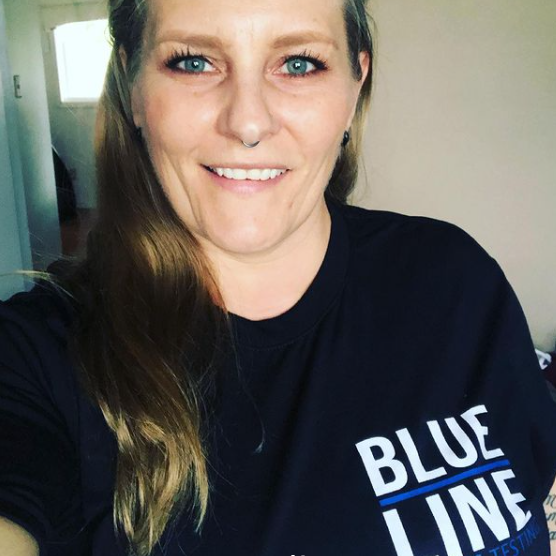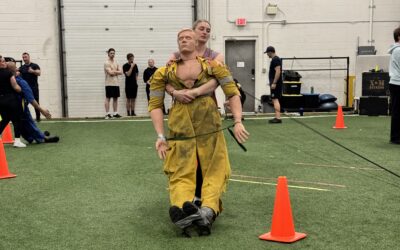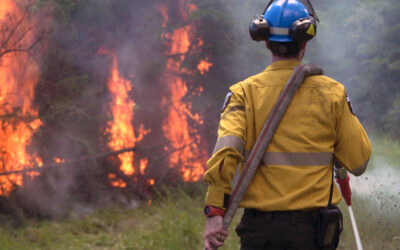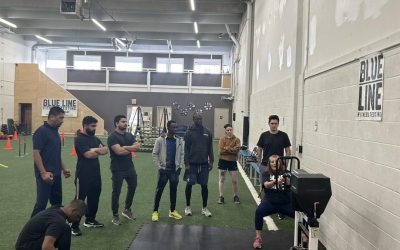
What do I need to become a Canadian Border Services Agent?
1. High school school diploma
2. Valid driver’s license
3. Canadian citizenship or permanent residency
Preference is given to veterans and Canadian citizens in that order.
Graduation with a university degree or two-year college diploma from a program like criminology, law, security, psychology, sociology or policing complement our training and development program and may be considered an asset.
The CBSA recognizes foreign education credentials that are comparable to Canadian standards (refer to the Canadian Information Centre for International Credentials).
The Canadian Firearms Safety courses (CFSC and CRFSC) are no longer required in order to apply. Now, you will have until the start of training to do the courses and pass the tests.
You will be subject to a secret security clearance as part of the selection process. You must maintain your clearance throughout your employment with the Agency.
How long does it take to become a Border Services Agent?
Once your application is pulled from their inventory, the selection process can take up to one year.
The training phase is made up of four weeks of online training followed by 4.5 months of in-residence training at our college in Rigaud, Quebec.
The on-the-job development phase is 1 to 1.5 years long.
Steps in the Application Process
- Officer trainee entrance exam (OTEE)
- Interview
- Firearms safety courses
- Physical evaluation
- Second language evaluation
- Psychological assessment
- Medical exam
- Secret security clearance
Note
In all cases, results will be emailed as soon as they are available, which is usually within a few weeks of the test/interview.
Some administrative requests and assessments are scheduled simultaneously. You may receive an invitation for another assessment prior to receiving previous results. Only your formal test or interview results indicate if you are successful and remain in the selection process.
1. Officer trainee entrance exam (OTEE)
You must write and pass a test that assesses the following competencies:
- reasoning skills
- writing skills
- analytical thinking
- client orientation
The results from the exam are valid for life, but if you are not successful you must wait one year to re-write it.
2. Interview
We will assess the following competencies:
- dealing with difficult situations
- decisiveness
- effective interactive communication
- judgment
- personal integrity
- values and ethics
The trainee selection process is governed by the Public Service Employment Act (PSEA). Under the Act, we are not required to provide feedback as part of an external selection process.
3. Firearms safety courses
You must complete the Canadian Firearms Safety Course (CFSC) and the Canadian Restricted Firearms Safety Course (CRFSC) and pass the tests before you begin training. You do not need a possession and acquisition license (PAL).
4. Physical evaluation
The Physical Abilities Requirement Evaluation (PARE) assesses your ability to undergo physically demanding “use of force” training. You must complete it in 4:45 min or less.
The test is made up of an obstacle course, push-pull and weight-carry stations. The first two stations are timed and the third is pass-fail. There is no waiting period to attempt the PARE again if you are not successful.
Schedule your PARE session at an approved test centre and cover the cost.
Your PARE results are valid for 18 months from the date of your test. We recommend that you complete the test and keep your results up-to-date while you have an active application.
5. Second language evaluation
Bilingual positions require a working knowledge of both official languages. You must be able to speak, read, and write in both English and French at a designated level.
If you get an intermediate level (BBB) in your second language, you will be considered for bilingual positions.
Results are valid for five years. If you have previously completed the testing, we will provide instructions on how to submit your results.
6. Psychological assessment
The psychological assessment evaluates your ability to deal with stress. This helps them determine if you are suitable to attend the duty firearms course, which is a condition of employment (COE). It is administered by clinical psychologists in designated offices across Canada. It includes two exams and a face-to-face interview scheduled close together. Results are valid for two years
7. Medical exam
A physician designated by Health Canada completes an Occupational Health Assessment Report. This Category IIIassessment evaluates your physical ability to perform the duties of a border services officer.
You must meet the following vision and hearing standards:
- Vision: corrected vision 6/9 in the better eye and 6/15 in the other eye.
- Hearing: no more than a 25 decibel loss (in the better ear) at a range between 500–3000 hertz.
The doctor’s decision determines if you are able to undergo “use of force” training and perform the physical duties of a border services officer. Results are valid for one year.
8. Secret security clearance
Due to the enforcement role of the CBSA, and the sensitive nature of the work that border services officers do, candidates must be able to get a secret security clearance. It is important to us that we hire the right people and it is for that reason that the security clearance is the longest stage of the selection process. In order to get a secret security clearance you must:
- answer a range of law enforcement and security verifications
- provide digital fingerprints (at your expense)
- submit a form that includes information about your employment history, qualifications, references, and travel outside of Canada
- pass a credit check
- participate in a face-to-face integrity interview






